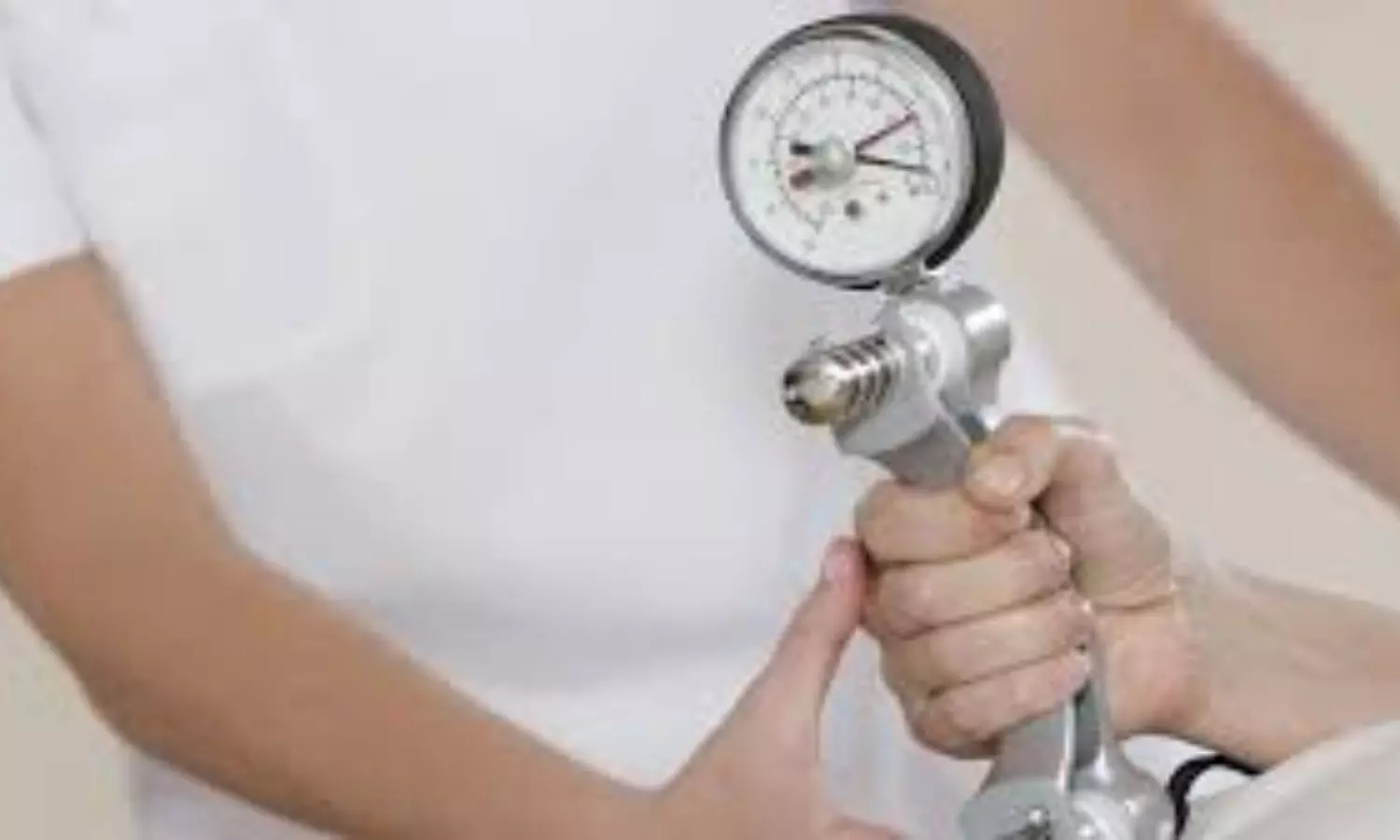Hand grip strength predicts shoulder function after rotator cuff repair, reports study

A recent study published in the Journal of Orthopaedic Surgery and Research highlights the role of a potential new indicator for postoperative success in rotator cuff tear repairs. The study analyzes the correlation between preoperative grip strength and postoperative shoulder function following arthroscopic rotator cuff repair (ARCR) where precise predictions can make all the difference in patient outcomes.
Rotator cuff tears (RCTs) are a widespread musculoskeletal issue that often necessitates surgical intervention for repair. ARCR is a common procedure for tendon repair which is frequently used in addressing this condition. The ability to accurately predict postoperative outcomes remains an ongoing challenge for orthopedic surgeons.
The study prospectively enrolled a total of 52 patients with full-thickness repairable RCTs to bridge this gap in knowledge. The baseline parameters like patient characteristics and intraoperative findings were meticulously analyzed along with postoperative shoulder functional outcomes. The Quick Disabilities of the Arm, Shoulder and Hand (QDASH) questionnaire and Constant–Murley scores (CMSs) served as the measures to evaluate shoulder function.
The study discovered a strong association between preoperative grip strength and postoperative shoulder function. The patients who expressed higher grip strength prior to surgery tended to experience more favorable outcomes following ARCR. This finding suggests that a simple preoperative grip strength test could serve as a valuable predictor for postoperative shoulder functional recovery.
The study identified other factors that influenced postoperative outcomes. The number of total suture anchors utilized during surgery inversely correlated with postoperative CMSs by indicating a potential impact of surgical technique on patient recovery. The higher body mass index (BMI) was associated with poorer postoperative QDASH scores during follow-up by highlighting the multifaceted nature of factors that influence surgical outcomes.
These findings suggest that implementing preoperative grip strength assessments as part of the standard evaluation process could provide valuable insights into expected postoperative recovery trajectories. Surgeons can tailor interventions and support strategies accordingly by identifying patients who may face challenges in their rehabilitation journey which could ultimately enhance the overall patient care and satisfaction.
The studies like this serve as important steps toward improving surgical outcomes and patient quality of life. Further research and clinical validation will help in making preoperative grip strength testing as a fundamental tool to offer personalized care and optimized results for individuals who undergo ARCR.
Source:
Liu, Y.-C., Huang, S.-W., Adams, C. R., Lin, C.-Y., Chen, Y.-P., Kuo, Y.-J., & Chuang, T.-Y. (2024). Preoperative handgrip strength can predict early postoperative shoulder function in patients undergoing arthroscopic rotator cuff repair. In Journal of Orthopaedic Surgery and Research (Vol. 19, Issue 1). Springer Science and Business Media LLC. https://doi.org/10.1186/s13018-024-04750-8



